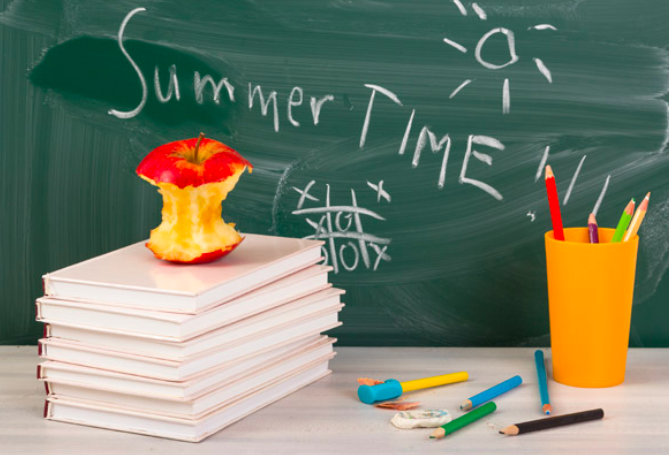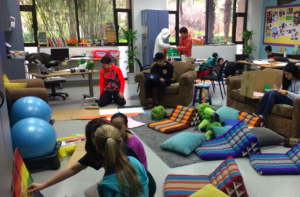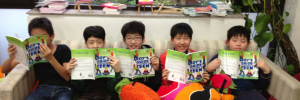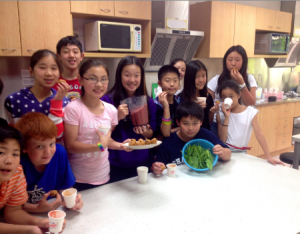Teaching summer school health class? Here are some idea to keep students interested. Shutterstock
My first experience as a health teacher was during summer school. I was only 24 years old, at the beginning of my career, and intimidated beyond belief. When I started, I was given a stack of worksheets, the teacher’s guide to an outdated textbook, and a box of old VHS tapes.
Very little of the material seemed relevant to my students, and I had no clue how I was going to keep their attention for three hours a day. But I survived—and you can too!
Here are some of the ways I made it through that first summer, as well as great free online resources filled with lesson and project ideas to make sure the class is relevant, fun, and worth every hour.
1. Find out what the most pressing health issues are in your school community.
The best way to make sure that your content is relevant is to ask the kids directly. Give each student a small spiral-bound notebook and start every class with a journal topic. This is the way I started that first health class 12 years ago—and how I’ve started every class since.
Day 1: What are some of the biggest health concerns in our school community? What about for you and your family?
* I’m clear with students that their journals are confidential, with the exception being if I think they (or someone else) are in danger. In that case, I am obligated to involve the school counselor. This helps them to be open and honest with me.
After class, I spend that first afternoon pouring through all 36 journals. But it is worth every minute, because I’m able to plan out how we will spend the next three weeks.
2. Ditch the worksheets and switch to project-based learning.
When you give the students projects to work on, the time flies by and everyone learns so much more. Plus, they’re out of their seats and collaborating with their peers.
Here are some resources from the Buck Institute—the leaders in project-based learning—to help guide students through the collaboration and planning process. You’ll need to create an account, but all of the downloadable materials are free.
Possible project ideas:
• Make your own Public Service Announcements. You definitely won’t have time to cover all of the content areas, but this is a great way to cover each of the National Health Education Standards. Assign groups different issues to cover—alcohol, drug abuse, bullying, healthy eating, mental health awareness, etc.—and show them a variety of examples of effective PSAs. Then have them work on creating their own.
• Research and present different advocates in action. Thanks to social media, it’s easier than ever to become an advocate. Have the students find a person that inspires them and present it to the class.
• For more project ideas (complete with rubrics and instruction sheets), check out some of my past posts on Choices. You’ll find resources on there for projects ranging from alcohol, nutrition, physical activity, and much more.
3. Break up the day with videos that are up-to-date and worth the time.
Some possible suggestions:
• TED Talks: Here are some that have worked in my class and sparked discussion with the kids.
• Documentaries: There are some newer food-based ones that are worth exploring—Fed Up, Food, Inc., and The Great Cafeteria Takeover. Just avoid Super Size Me. It’s over a decade old, and the kids all know that eating fast food for 30 days in a row isn’t a good idea. While it was a health class staple for many years, it’s now a waste of valuable instruction time.
• The Happy Movie: It’s a great documentary about the science of happiness that covers so much of what we cover in class. My students love it!
Three hours is a long time to keep students engaged. If you find yourself struggling, resist the temptation of the worksheet and try some of these meaningful filler activities instead. And for more lesson ideas and resources, check out KidsHealth.org, HealthTrek, or Common Sense Media.




